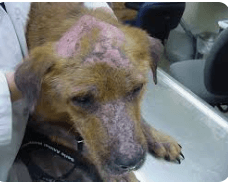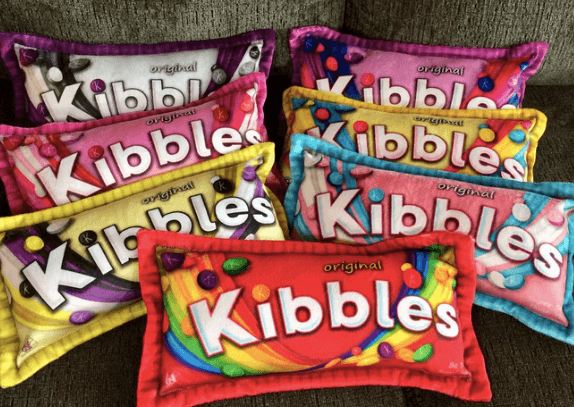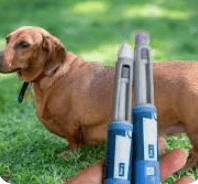Natural treatment options for Pemphigus exist. Pemphigus is traditionally defined as an autoimmune disease of the skin where the dog's immune system attacks skin cells, causing painful blisters, pus-filled bumps (pustules), crusting, erosions, and alopecia (hair loss) that often start on the face and spread to the rest of the body. Pemphigus Foliaceus is the most common for of the disease and breeds like Akitas, Chow Chows and English Bulldogs are predisposed even though any breed can be affected. there are four kinds of Pemphigus:
- Pemphigus Foliaceus: affects the skin at the surface level, causing blisters, scales, ulcers, itching, and redness. It typically appears on the mouth, nose, face, anus, and paw pads. Swollen lymph nodes, depression, and limping if paw pads are impacted are common symptoms.
- Pemphigus Erythematosus: Similar to pemphigus foliaceus but not as intense. Symptoms include the loss of color in the lips and lesions are often just in the face and paw pads.
- Pemphigus Vegetans: Characterized by thick, vegetative lesions that develop in skin fold areas like the groin and armpits.
- Pemphigus Vulgaris: This is the most difficult strain of pemphigus as it attacks the entire epidermis and is associated with painful ulcers in the mouth that makes eating difficult. It can spread throughout the entire body, making them more susceptible to secondary infections. The prognosis is poor and the disease can be fatal.
Source: Natural Dog Company
Pemphigus is can be very serious, however natural treatment options for pemphigus exist.

According to the VCA, pemphigus is caused by endogenous (internal), exogenous (external), and idiopathic (unexplained) factors. Endogenous cases of pemphigus include genetic predisposition for that cause defects to immune function, which then trigger chronic skin allergies, cancer and or pemphigus.
Exogenous causes of pemphigus are environmental triggers, such as viral infections, ultraviolet (UV) light exposure, drug reactions and vaccine reactions that cause changes to the immune system of predisposed patients.
Idiopathic causes mean that veterinarians and scientists can't identify a cause and believe pemphigus "just happens" without endogenous or exogenous triggers.
We believe pemphigus is triggered by genetic predisposition and environmental factors. We do not believe anything happens "just because." We have seen bulldogs develop pemphigus after routine vaccinations as well as apoquel and use other immunosuppresant drugs.
Traditional treatment for pemphigus targets suppressing the immune system by immunosuppressive medications such as corticosteroids including prednisone or prednisolone and azathioprine, chlorambucil and cyclosporine may be added to the regimen depending on the severity of the case. Topical corticosteroids are often prescribed to be applied to skin lesions and antibiotics may be given if the dog is prone to bacterial skin infections.
Steroids are "man-made version of hormones normally produced by the adrenal glands," that are intended to reduce inflammation and "reduce the activity of the immune system, which is the body's natural defense against illness and infection" (Source: NHSUK). Further, according to the VCA (an animal hospital owned by MARS inc.) states that steroids "are commonly used to treat mild inflammatory conditions and/or to suppress the inflammation associated with an allergic response. When administered in high doses, they act as immunosuppressant drugs meaning they suppress or prevent an immune response" (Source: VCAHospitals). Other side effects of long-term use of immunosuppressive drugs include:
- Increased susceptibility to skin, bladder and fungal infections and secondary infections
- Changes to skin and coat, such as thin skin, blackheads, and poor hair growth.
- Poor wound healing
- Obesity and muscle weakness
- Calcinosis cutis (calcium deposits in the skin).
- Increased risk for diabetes and Cushing's disease
- Overgrowth of gum tissue around the teeth (Gingival hyperplasia)
- Bone marrow suppression
- Liver toxicity
- Gastrointestinal problems including diarrhea, vomiting, and loss of appetite
We also believe that this treatment plan is just that: a treatment and not a solution. And for many cases of pemphigus, this treatment plan will actually do more harm than good in the long term. So here's where things get wild and cray. If you are taking your dog to the vet for some illness, their immune system and digestive system is already compromised. Sure, steroids can reduce inflammation, but its' at the expense of your dogs' already compromised immune system.
When a dog or a human has an autoimmune condition, it is very likely gut inflammation is present and there is a strong link between the gut microbiome and inflammation in the body. According to this 2020 study, "the presence of certain bacteria is associated with inflammatory molecules that may bring about inflammation in various body tissues." Sure, steroids can reduce inflammation, but its' at the expense of your dogs' already compromised immune and digestive systems.
We have seen firsthand the side effects of dogs that have been treated for pemphigus with conventional oral and topical steroids. The results initially were good because the symptoms lessened or disappeared entirely. However, in the long-term, the symptoms reappeared with a vengeance and required even more steroids to control. The result of so much steroid use was detrimental. Natural treatment options for Pemphigus exist. Read on.
So what do you do if your dog does have pemphigus?
If your dog does have an autoimmune disease like pemphigus, the best approach is strengthening their immune system and digestive system by rebalancing the gut microbiome via the lifestyle factors that you can control, like diet. Swapping out kibble for raw, dehydrated raw or home-cooked will help to strengthen their immune and digestive systems. Take a look at the following suggestions:
- Focus on a natural, fresh, hydrated diet packed with healthy macro and micro nutrients such as proteins, fats, healthy / low-glycemic carbs, vitamins and minerals
- Incorporate inflammation-reducing supplements including ginger, turmeric and golden paste.
- Include digestive enzymes, probiotics and colostrum as well as pre biotic food such as apples, asparagus, yogurt and kefir to help rebalance their gut microbiome.
- Add cod liver oil to their diet to reduce inflammation, support heart health, brain function, bone health, immune health, skin health and mood.
To help with lesions, blisters, pustules, crusting, erosions and alopecia caused by pemphigus, you should apply a mixture of activated charcoal powder, betonite clay and filtered water or apple cider vinegar. You mix equal parts of activated charcoal and bentonite clay and 2x time the amount of filtered water or apple cider vinegar to make a "paste" like texture. In other words, take 1 tablespoon each of activated charcoal and bentonite clay and mix with 2 tablespoons of filtered water or apple cider vinegar. You can make more or less as needed. I like to make this in bulk to have on hand when needed. Next, apply the paste to the cyst and wait 20 minutes to take it off with a warm compress. Warning: this can be messy so removing in a bathroom or outside is ideal. This paste naturally draws out toxins and detoxifies the skin. If your dog has a severe case, applying 3x per day is recommended.
In addition to topical treatment and diet changes, homeopathic remedies should be used and determined based on the specific pemphigus symptoms your dog is experiencing and their personality. Consulting with a homeopathic veterinarian is crucial in determining the remedy that would work best for your dog. We have found that Catha palustris, Cantharis, Mancinella, Ranculus sceleratus, Jugians cinerea, Rhus tox and Arsenicum album have been effective in treating Pemphigus.
When it comes to Pemphigus or any disease for that matter, the best defense is a good offense. A good offense means feeding a high-quality raw or home cooked diet to support both the immune system and digestive system by including pre and probiotics, digestive enzymes, golden paste. If your dog does develop Pemphigus or another autoimmune disease, consulting with a homeopathic veterinarian is crucial because natural treatment options for pemphigus exist.
Donate to Bobzilla.org

$5.00
The veterinary business is business which is not in the business of curing your animal, but Bobzilla's business is. Bobzilla is committed to one hundred percent transparency in all of its scientific research into animal wellness and prevention of disease and one… read more
.



